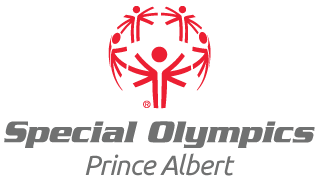Who We Are
Special Olympics is an international organization that changes lives by encouraging and empowering people with intellectual disabilities, promoting acceptance for all, and fostering communities of understanding and respect worldwide.
Founded in 1968 by Eunice Kennedy Shriver, the Special Olympics movement has grown to include nearly 3.1 million athletes in 228 programs in 175 countries, providing year-round sports training, athletic competition, and other related programs, including Special Olympics Healthy Athletes™.
Special Olympics provides people with intellectual disabilities continuing opportunities in a variety of Olympic-type sports so that they may realize their potential, develop physical fitness, demonstrate courage, and experience joy and friendship.
Special Olympics in Canada
In June 1969, in Toronto, Ontario, the very first Special Olympics national competition was held, less than one year after the sport movement was born on Chicago’s Soldier Field. It attracted 1,400 individuals with an intellectual disability from towns and cities across the country.
Competing in athletics, aquatics, and—no surprise here—floor hockey, they joined Harry “Red” Foster, the visionary who worked tirelessly to bring the sport movement to this country. The Canadian broadcast legend, advertising executive, and philanthropist was inspired by what he had seen in Chicago, Illinois, one year earlier.
Today, the movement has expanded across Canada, so that it is no longer just a cycle of national competitions. Special Olympics now enriches the lives of more than 32,000 individuals who are registered in its 14 Olympic-type winter and summer sport programs, run by local sport clubs, as well as the lives of their family, friends, and supporters.
Sport Canada, a government agency under the Department of Canadian Heritage, recognizes Special Olympics as the main provider of these services to people whose primary diagnosis is an intellectual disability. Special Olympics is guided by the framework of the Long Term Athlete Development Model, developed in association with Sport Canada.
A Canadian Connection
In the early 1960s, a group of students at Beverley School, an inner-city school in Toronto, Ontario, became the test group for Dr. Frank Hayden, a sport scientist at the University of Toronto. Dr. Hayden was studying the effects of regular exercise on the fitness levels of children with an intellectual disability.
Dr. Hayden’s research was nothing short of groundbreaking. It debunked the prevailing mindset of the day – one that claimed that it was the disability itself that prevented them from fully participating in play and recreation. Through rigorous scientific method, Dr. Hayden proved that it was simply the lack of opportunity to participate that caused their fitness levels to suffer. Given the opportunity, people with an intellectual disability could become physically fit and acquire the necessary skills to participate in sport.
Dr. Hayden also demonstrated the transformative effects of sport on individuals with an intellectual disability. More significant was that this research would catch the attention of Eunice Kennedy Shriver, and become the foundation upon which the Special Olympics movement was born in 1968 in Chicago, Illinois, on Soldier Field. Toronto’s Beverley School was also involved on that day: a group of 12 of its students represented Canada at this inaugural competition.
Saskatchewan Milestones
1975 - Saskatchewan Special Olympics was incorporated
1978 - Saskatchewan Special Olympics society hosted the National Invitational Special Olympics Summer Games in Regina. 500 athletes, drawn from every province in Canada participate.
1992 - The second SOC National Winter Games were held in Saskatoon.
2002 - The 10th SOC National Summer Games held in Prince Albert, attended by 1200 athletes from across Canada.

